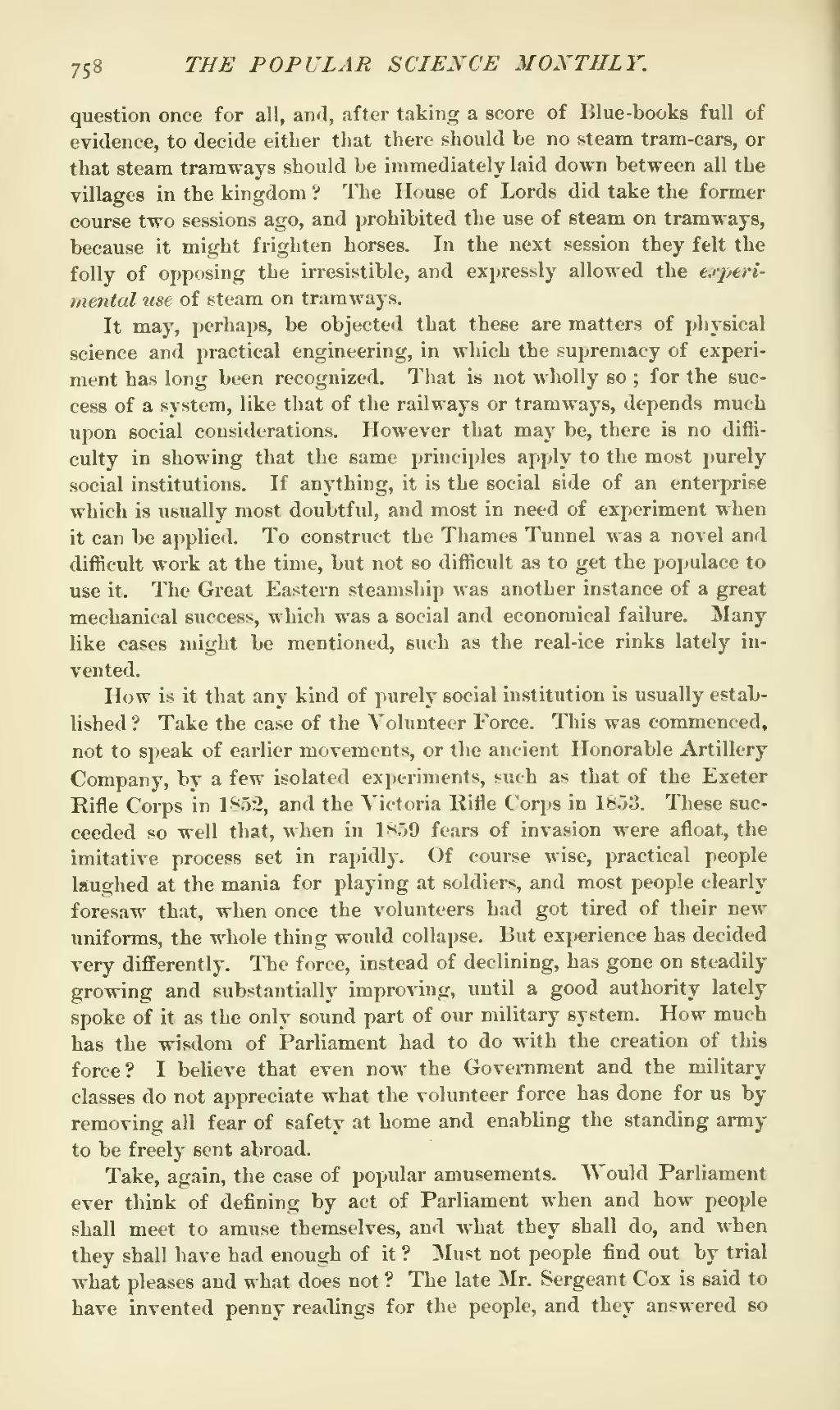question once for all, and, after taking a score of Blue-books full of evidence, to decide either that there should be no steam tram-ears, or that steam tramways should be immediately laid down between all the villages in the kingdom? The House of Lords did take the former course two sessions ago, and prohibited the use of steam on tramways, because it might frighten horses. In the next session they felt the folly of opposing the irresistible, and expressly allowed the experimental use of steam on tramways.
It may, perhaps, be objected that these are matters of physical science and practical engineering, in which the supremacy of experiment has long been recognized. That is not wholly so; for the success of a system, like that of the railways or tramways, depends much upon social considerations. However that may be, there is no difficulty in showing that the same principles apply to the most purely social institutions. If anything, it is the social side of an enterprise which is usually most doubtful, and most in need of experiment when it can be applied. To construct the Thames Tunnel was a novel and difficult work at the time, but not so difficult as to get the populace to use it. The Great Eastern steamship was another instance of a great mechanical success, which was a social and economical failure. Many like cases might be mentioned, such as the real-ice rinks lately invented.
How is it that any kind of purely social institution is usually established? Take the case of the Volunteer Force. This was commenced, not to speak of earlier movements, or the ancient Honorable Artillery Company, by a few isolated experiments, such as that of the Exeter Rifle Corps in 1852, and the Victoria Rifle Corps in 1853. These succeeded so well that, when in 1859 fears of invasion were afloat, the imitative process set in rapidly. Of course wise, practical people laughed at the mania for playing at soldiers, and most people clearly foresaw that, when once the volunteers had got tired of their new uniforms, the whole thing would collapse. But experience has decided very differently. The force, instead of declining, has gone on steadily growing and substantially improving, until a good authority lately spoke of it as the only sound part of our military system. How much has the wisdom of Parliament had to do with the creation of this force? I believe that even now the Government and the military classes do not appreciate what the volunteer force has done for us by removing all fear of safety at home and enabling the standing army to be freely sent abroad.
Take, again, the case of popular amusements. Would Parliament ever think of defining by act of Parliament when and how people shall meet to amuse themselves, and what they shall do, and when they shall have had enough of it? Must not people find out by trial what pleases and what does not? The late Mr. Sergeant Cox is said to have invented penny readings for the people, and they answered so
